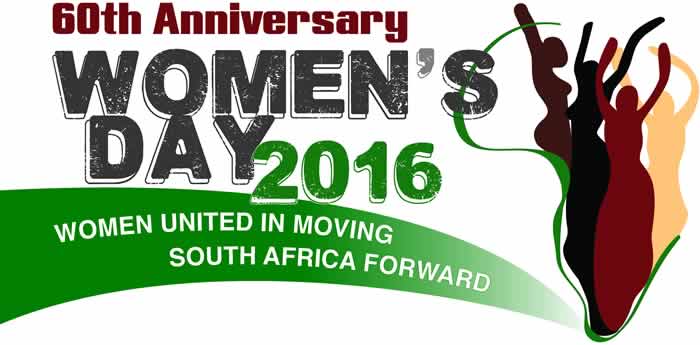
South Africa’s dramatic – and mostly traumatic – history causes us to go big on anniversaries where we look at the road we have travelled as a nation, and plot our way further forward.
This is certainly true again in August 2016 as we mark 60 years since around 20 000 women marched to the Union Buildings on 9 August 1956 in protest against the extension of Pass Laws to women.
This historic march was a turning point in the role of women in the struggle for freedom and society at large. Since that eventful day, women from all walks of life became equal partners in the struggle for a non-racial and non-sexist South Africa.
The march was coordinated by the Federation of South African Women (Fedsaw) led by four women: Lillian Ngoyi, Helen Joseph, Rahima Moosa and Sophia Williams De Bruyn.
These leaders delivered petitions to the then Prime Minister JG Strijdom’s office at the Union Buildings. Women throughout the country had put their names to these petitions, indicating their anger and frustration at having their freedom of movement restricted by the hated official passes.
With the advent of democracy, the ANC-led government declared August Women’s Month and 9 August as Women’s Day.
Women’s Month is a tribute not only to the thousands of women who marched on that day in 1956, but also a tribute to the pioneers of the women’s movement in this country, dating back to 1913, when women like Charlotte Maxeke led the way in establishing the ANC Women’s League.
This August, government will join communities in marking 60 years since the Women’s Month.
This will be a month for all of us to recognise the challenges that continue to face women in terms of poverty, unemployment and inequality, but also to celebrate our country’s impressive record in reversing or least reducing the disadvantage, discrimination and underdevelopment women suffered as a matter of course under apartheid.
We have electrified households in urban, peri-urban and rural areas. The percentage of households that are connected to electricity supply increased from 69.7 percent in 2001 to 86 percent in 2014.
Millions of people no longer rely on candles for lighting their residential dwellings. The ANC government has reduced the chance of fires in informal settlements in towns and cities, which often destroy people’s belongings. Many rural women are relieved of the burden of fetching firewood from faraway forests.
Great progress has been made in increasing the number of households with access to water infrastructure. Between 2001 and 2014, the percentage of households with access to piped water increased from 61.3 percent in 2001 to 90 percent in 2014. The proportion of households benefiting from free basic water services increased dramatically between 2007 and 2013.
“Women’s Month is a tribute not only to the thousands of women who marched on that day in 1956, but also a tribute to the pioneers of the women's movement in this country...”
Our people, including rural communities, have access to clean and potable water. This means that we have reduced the chances of exposure to diseases such as diarrhea and related illnesses. Women in many informal settlements in cities and towns do not have to ask their neighbours for water.
Far fewer rural women have to travel far distances to reach wells, dams and rivers to fetch water for their households.
The life expectancy of South Africans is increasing. Average life expectancy increased from 53.4 years in 2004 to 62.5 years in 2015.
The increase in average life expectancy is matched by a fast decreasing infant and children-under-five mortality rate. For instance, in 2002, the infant mortality rate was 51.2 babies per 1,000 live births. In 2015, infant mortality rate decreased to 34.4 deaths per 1,000 live births.
We owe these achievements to the mothers, sisters, daughters and granddaughters of our nation who play an active and often leading role in their own development. “Nothing about us, without us,” they declare as they demand that their voices be heard and their ideas be taken seriously and implemented.
Pretoria will be the centre of the national celebration of Women’s Day on 9 August, and men and women all over the country are invited to be part of Women’s Day celebrations in their home provinces and towns because this is a special national occasion.
What will make it even more special is that it will follow six days after the local government elections.
On August 3, millions of women will be on the march again, but not in anger at a stubborn, illegitimate, sexist government; the women of South Africa will be on a short march to voting stations where they will make their voices heard.
By August 4, we should have even more women elected to public office at the level where it matters most: local government.
We wish all female candidates in the election well and we look forward to working with new women leaders to move South Africa forward.


 Facebook
Facebook Twitter
Twitter WhatsApp
WhatsApp